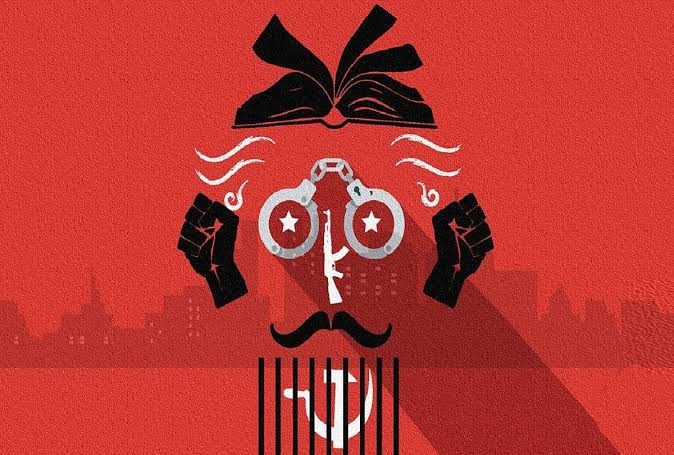Urban Naxals, a Greater Threat Than Armed Maoists!
According to intelligence reports, the DU-based left student organisation Bhagat Singh Chhatra Ekta Manch (bsCEM) was involved in this incident, which is linked to the Chhattisgarh-based pro-Maoist organisation Moolwasi Bachao Manch (MBM) Bastar.

Intelligence agencies at the federal and state levels reacted when unpleasant graffiti and banners commemorating the Naxalbari uprising were discovered in the DU area, accusing the Indian parliamentary system of corruption and urging for a boycott of the upcoming elections. The wall paintings also advocated for the formation of a strong militant opposition in order to spark a new democratic revolution.
The Naxalbari uprising of 1967 was a violent insurrection of communists. This year, May 25, marked the 57th anniversary of the event.
According to intelligence reports, the DU-based left student organisation Bhagat Singh Chhatra Ekta Manch (bsCEM) was involved in this incident, which is linked to the Chhattisgarh-based pro-Maoist organisation Moolwasi Bachao Manch (MBM) Bastar.
According to sources, activists from two groups, including academics, student leaders, and even representatives of renowned international NGOs, are members of the distantly operated 'Maoists Urban' network, which is essentially a front organisation for the CPI-Maoist.
The youths studying at DU are well-connected with the Maoists, as they frequently speak out against the state and security forces involved in anti-Naxal operations, notably in Chhattisgarh.
The latest development on the DU campus is extremely significant, given the CPI-Maoists' recent admission that their organisational strength has suffered massive depletion in Chhattisgarh since the Chief Minister Vishnu Deo Sai-led Bharatiya Janata Party (BJP) government took power and launched a major offensive against the Maoists.
So far, 113 Maoists have been killed in separate encounters with security personnel in Chhattisgarh's Bastar division, which is consistent with Home Minister Amit Shah's April 17 promise that Naxalism will be eradicated totally from the state.
According to sources, despite repeated failures in far-flung strongholds in Chhattisgarh's forests, Maoist activists and sympathisers are continually attempting to reach metropolitan areas.
The Maoist movement may have reached a bloody patch in their tribal strongholds, but they are extremely active in Delhi, Maharashtra, Haryana, Gujarat, Karnataka, Tamil Nadu, and Kerala.
The Maoist plan to gain political power is outlined in a key document published by the Communist Party of India (Maoist) titled "Strategy and Tactics of the Indian Revolution." One of the strategies adopted by Maoists is to mobilise certain targeted sections of the urban population through its mass organisations, which are otherwise known as 'front organisations.
The modus-operandi of such organisations is to pursue civil rights problems while also being well-versed in using the framework's vulnerabilities to their benefit.
Ideologues and sympathisers of Maoist urban networks in cities and towns have launched a coordinated and systematic propaganda campaign against the government. In reality, these ideologues are more dangerous than PLGA cadres.


